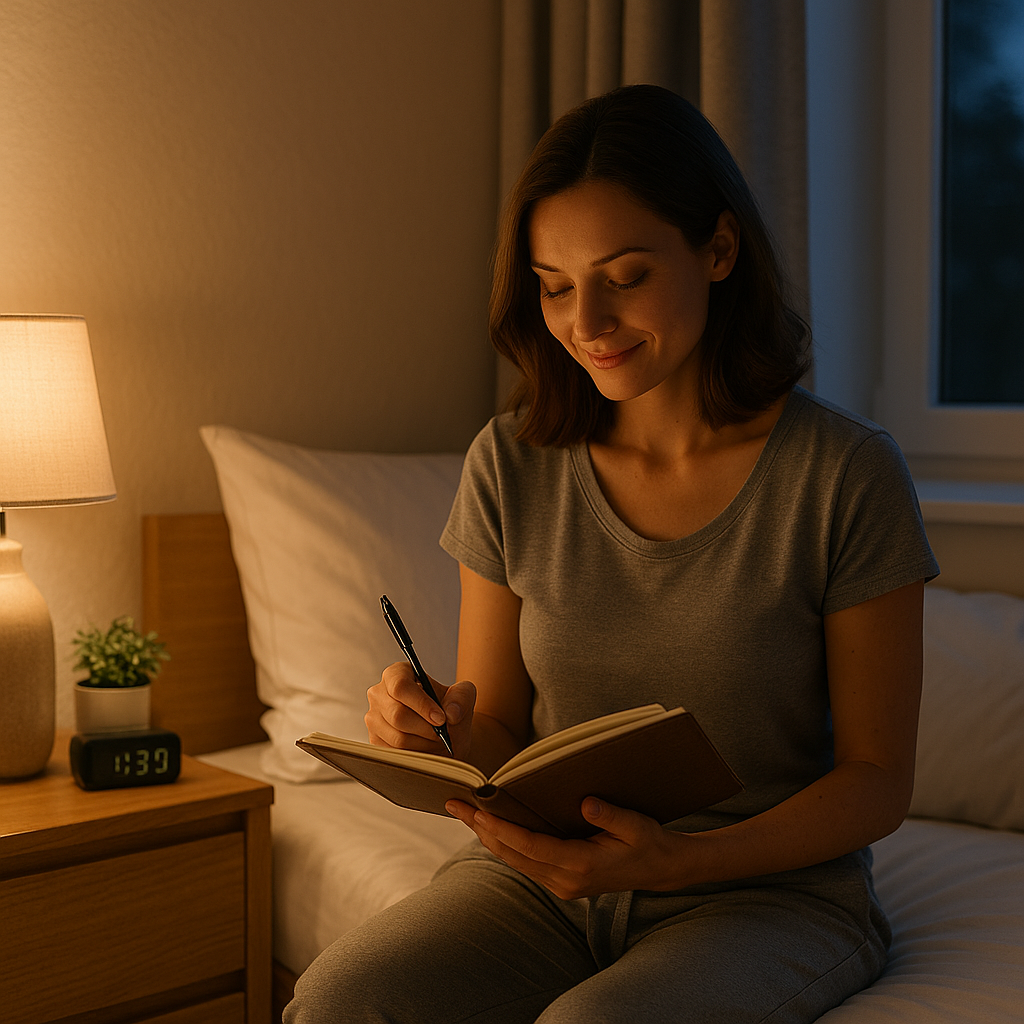If your nights feel chaotic, rushed, or unproductive, you’re not alone. Many people struggle to wind down, disconnect from stress, and get restful sleep. But by learning how to create an evening routine that actually works, you can completely transform how your day ends—and how the next one begins.
A well-designed nighttime routine helps you calm your mind, prepare your body for sleep, and reset your mindset. When paired with a strong morning routine and daily structure (like we explored in organizing your daily routine and morning habits), your evening habits become a powerful part of your overall productivity system.
Why You Need a Nighttime Routine That Works
Your evening routine is your brain’s signal that the day is winding down. Without it, you carry mental noise into the night, disrupting your ability to relax or fall asleep.
An evening routine for better sleep provides:
- Mental closure from the day’s stress
- Physical relaxation to prepare the body
- Time to reflect, reset, and plan ahead
- Better sleep quality and morning energy
- More emotional balance and focus the next day
Step 1: Set a Consistent Bedtime (and Stick to It)
The first rule of a nighttime routine that works is consistency. Going to bed and waking up at the same time—even on weekends—helps regulate your circadian rhythm.
H2 – Consistency in Your Evening Routine Builds Long-Term Results
- Choose a bedtime that allows for 7–9 hours of sleep
- Set a recurring alarm to begin your wind-down routine 30–60 minutes before
- Avoid staying up late “catching up” on tasks—rest is productive
Step 2: Disconnect From Screens Early
Blue light from phones and computers suppresses melatonin, making it harder to fall asleep. Set a cut-off time for screens to allow your mind to ease into stillness.
H2 – Evening Rituals That Help You Unplug from Technology
- Set your phone to “Do Not Disturb” 1 hour before bed
- Replace screen time with relaxing activities like reading or listening to soft music
- Avoid doom-scrolling or mentally stimulating content
Step 3: Create a Calming Wind-Down Ritual
The most effective bedtime habits include rituals that calm your body and quiet your thoughts. Think of this as your personal spa session—even 15 minutes can make a difference.
H2 – Simple Evening Habits to Calm the Mind and Body
- Take a warm shower or bath
- Practice deep breathing or guided meditation
- Light a candle or diffuse lavender oil
- Stretch gently or do a few yoga poses
These calming activities help signal to your nervous system that it’s safe to relax.
Step 4: Reflect on Your Day
Reflection is a powerful part of a nighttime routine that works. It helps you mentally close the day, process any lingering thoughts, and end the night on a positive note.
H2 – Evening Journaling: A Simple Habit With Big Benefits
- Write down what went well today
- Note anything you want to improve
- List one thing you’re grateful for
- Let go of negative thoughts on paper
This helps clear mental clutter and improves your emotional regulation.
Step 5: Plan for Tomorrow
One of the best ways to reduce anxiety before bed is to prepare for tomorrow. Your evening routine can include a few minutes of low-pressure planning to increase confidence and reduce decision fatigue in the morning.
H2 – Nighttime Planning as Part of a Relaxing Evening Schedule
- Review your calendar for the next day
- Choose your top 3 priorities
- Lay out your clothes or pack your bag
- Prepare meals or snacks in advance
This not only improves sleep but helps you start the next day with clarity.
Step 6: Create the Right Sleep Environment
Your physical space matters. A calm and clean environment supports the evening rituals you’re trying to build.
H2 – Design a Bedroom That Supports Your Night Routine
- Keep your bedroom cool, dark, and quiet
- Use blackout curtains or an eye mask
- Consider white noise machines or calming sounds
- Make your bed a phone-free zone
You’re training your brain to associate your bed with sleep and rest—not scrolling or working.
Step 7: Be Flexible, But Consistent
Life happens, and your routine won’t be perfect every night. What matters is consistency, not rigidity.
- Even a 10-minute routine can be effective
- Track your habits with a simple checklist
- Adjust based on your energy, mood, or needs
The key is to stick to your wind-down habits more often than not, especially on stressful days.
Final Thoughts: Your Evening Routine Is Your Reset Button
When you learn how to create an evening routine that actually works, you’re giving yourself the gift of peace, preparation, and mental clarity. It’s not about perfection or complex rituals—it’s about building a system that supports rest and resets your mindset for the day ahead.
Want better mornings, more focus at work, and a calm mind before bed? It all starts here—with small, steady habits that signal, “You’re safe, you’ve done enough, and it’s time to rest.”

